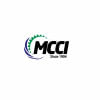Bangladesh economy expands in October

Bangladesh continues to grapple with domestic challenges such as frequent protests, sluggish improvements in law and order, as well a slowdown in public administration, despite experiencing an expansion in all key sectors of the economy in October, the Metropolitan Chamber of Commerce and Industry (MCCI) said in its latest Purchasing Managers' Index (PMI) report.
Bangladesh's PMI climbed to 55.7 in October, a solid 6-point increase from the previous month, signalling a shift back to expansion after three consecutive months of contraction, according to a MCCI press release.
The PMI reading, which signals expansion above 50 and contraction below, suggests a strengthening economic outlook, with all major sectors—agriculture, construction, manufacturing, and services—posting positive trends.
The Bangladesh PMI was developed in 2024 by the MCCI and Policy Exchange Bangladesh, in cooperation with the Singapore Institute of Purchasing & Materials Management (SIPMM) and supported by UK International Development.
The manufacturing sector, a vital pillar for Bangladesh's economy, demonstrated accelerated growth across key metrics, including new orders, factory output, and input purchases, despite ongoing contractions in employment, supplier deliveries, and order backlogs, according to a press release by the MCCI.
Agriculture showed its first expansion in business activity and new orders after months of downturn, although employment remained in contraction.
Input costs, a key metric, rose swiftly, reflecting rising expenses across sectors.
Construction returned to growth, albeit marginally, as it recorded slower contraction rates in employment and order backlogs.
The services sector similarly moved to an expansion phase, driven by a rebound in business activity and order backlogs, though employment contraction persisted.
However, the broader economy faces domestic hurdles, including public protests, law enforcement issues, and stagnant public administration, which may temper near-term gains.
All sectors reported slower expansion rates in future business expectations, reflecting cautious optimism amid continued challenges.

 For all latest news, follow The Daily Star's Google News channel.
For all latest news, follow The Daily Star's Google News channel. 








Comments